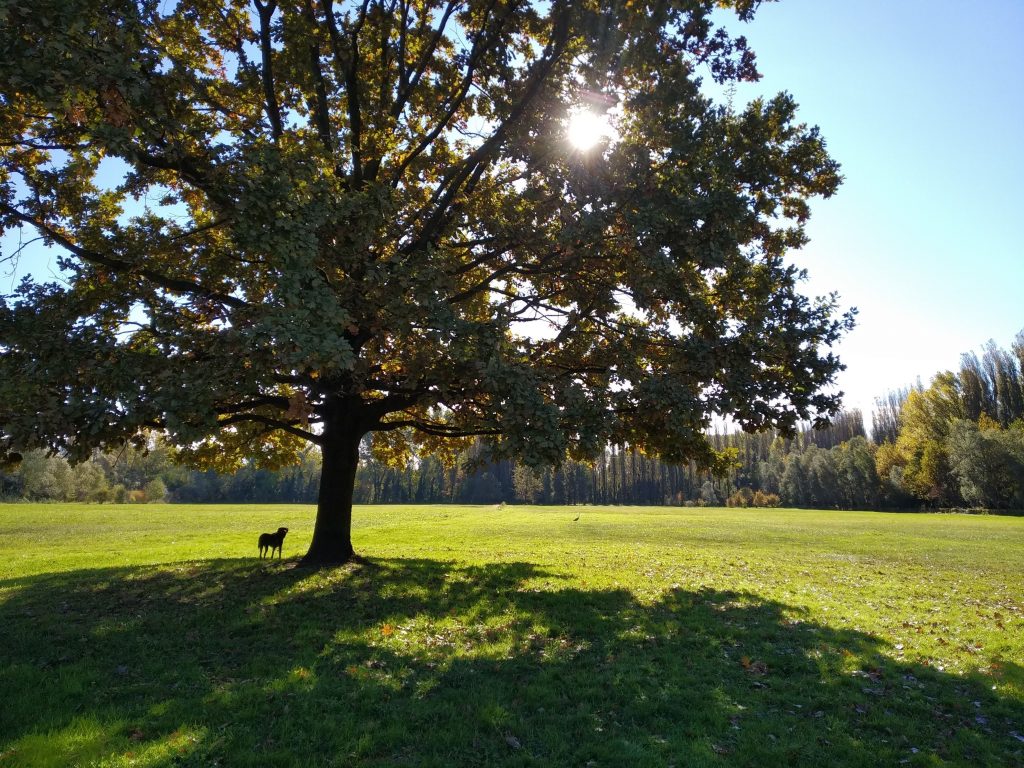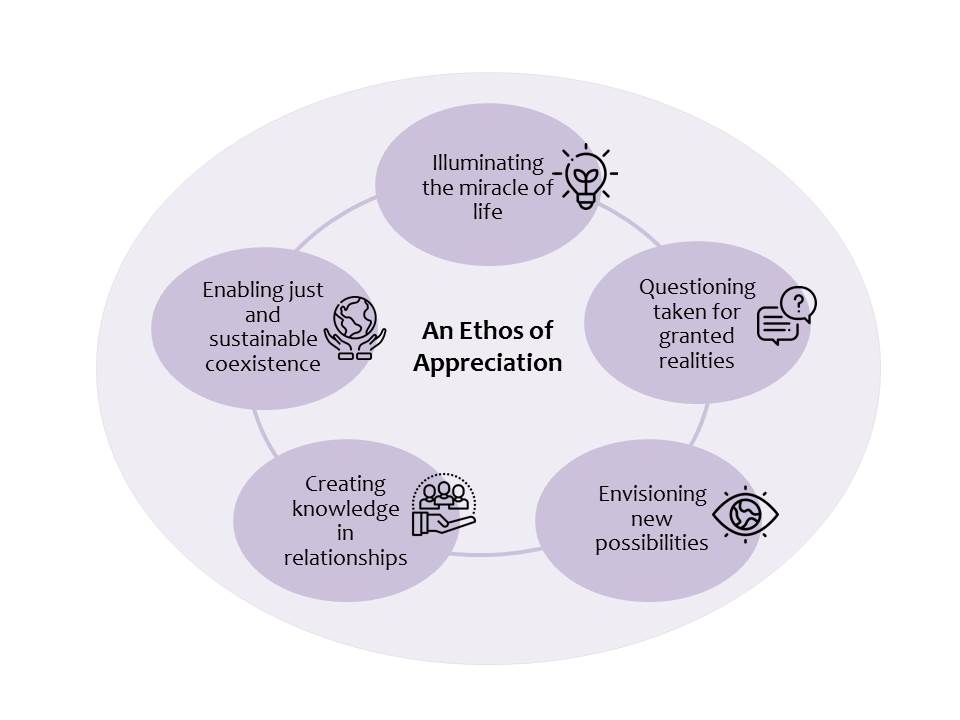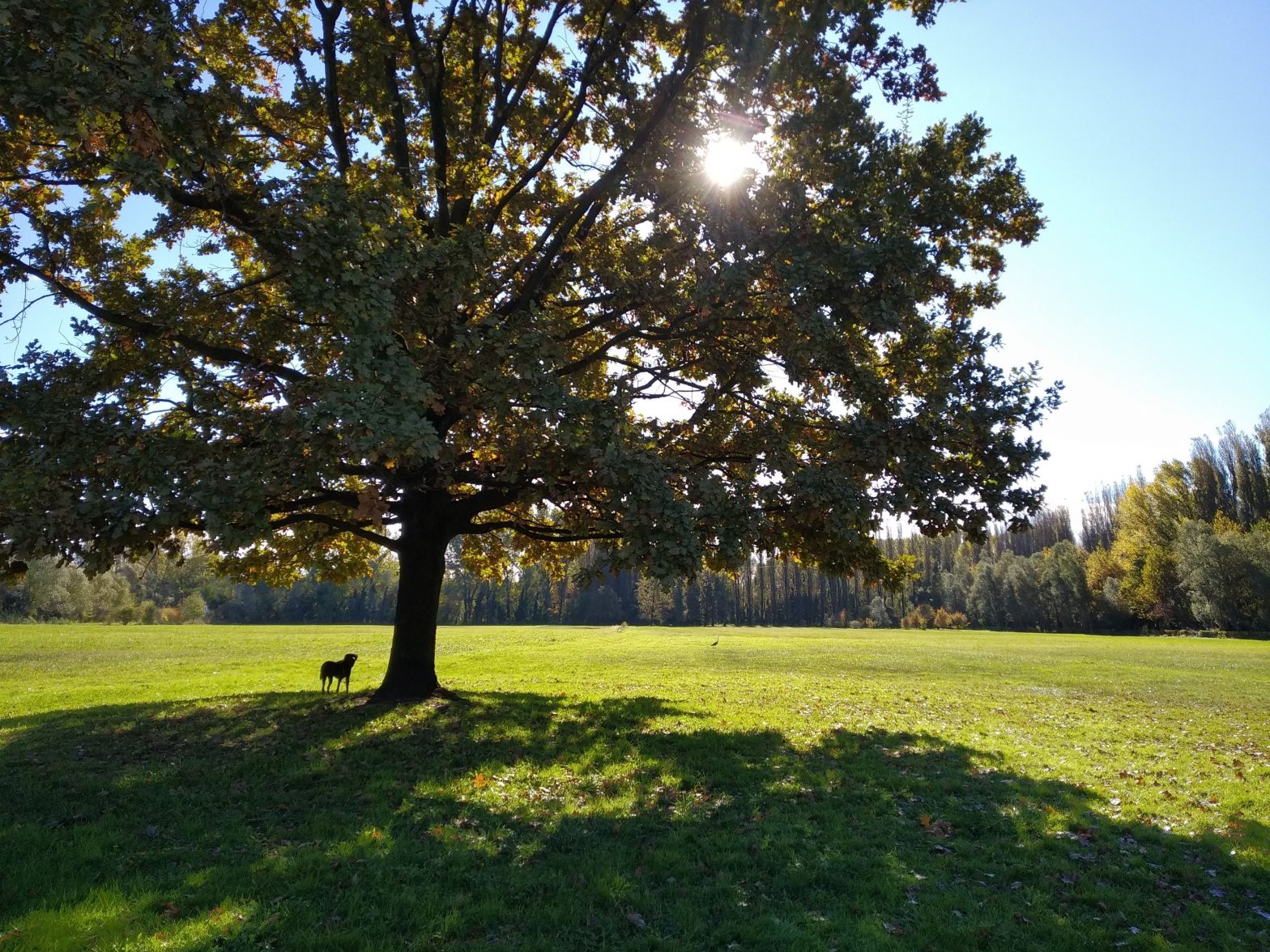By Angela Moriggi
I’m so tired
And not because of a love struggle, like in the Beatles’ song. It’s January 2022, we’re back to tighter restrictions, and I’m tired of ‘home working’, lack of social contacts, constant cautions (especially for my newborn), COVID-19 information overload, and other side-effects of our pandemic-stricken times.
My job as a sustainability scientist is to understand and address socio-ecological problems, by drawing from different disciplines, and by involving societal actors in research processes. That makes me very sensitive to COVID-19. The pandemic is a consequence of disruptive human activities on the ecosystem, and it exposes (part of) society’s mistrust in authoritative science and the (long-standing) distance between academia and laypeople.
As a researcher, I’ve got the tools to understand and dissect what’s happening. As an engaged scientist, I feel the ethical responsibility (and response-ability) to do my little part to act for the common good, including bridging the science-society gap in my daily work. Yet, as a human being, the emotional and psychological pressure sometimes are hard to handle.
In this blog, I’d like to share how certain resources I gained through my training as a sustainability scientist turned valuable at personal level too.

Many skills, new resources
Over the past few years, I trained in facilitation, transformative learning, creative writing, communication, graphic facilitation, and other skills. I learnt new techniques, as well as new philosophical approaches. One of them is Appreciative Inquiry, a strength-based approach that helps organisations and groups work better together, by focusing on strengths and assets, rather than gaps and failures. It is also a philosophical approach, grounded in an ‘ethos of appreciation’, which comprises five dimensions: illuminating the miracle of life, questioning taken for granted realities, envisioning new possibilities, creating knowledge in relationships, and enabling just and sustainable coexistence.
During my PhD, I tried to make these five dimensions ‘come alive’. I used them as the guiding principles for some of the creative methods I applied during my participatory action-research. My hope was to gather useful data but also to empower the participants involved, namely three communities of Finnish Green Care practitioners, who offer services in nature for well-being, social inclusion, pedagogical and recreational benefits. During the workshops with Green Care practitioners, creative methods (and the ethos of appreciation underlying them), helped me to create a safe collaborative space, to elicit future visions, and to tap into caring sustainable mindsets. I explain how in Chapter 6 of the open-access book “Co-creativity and engaged scholarship. Transformative methods in social sustainability research”.

(Figure from Moriggi 2022, inspired by Zandee and Cooperrider 2008)
Appreciation as a source of energy
Only recently I realized that Appreciative Inquiry and its ethos of appreciation are also a resource I can turn to at a personal level. ‘Ethos’ refers to the set of beliefs and values of a person (or of a culture/era/community) as manifested in its attitudes and aspirations. In theologist Vito Mancuso’s words, if ethics are our driving inner energy, ethos is the house we fill with that energy.
When my inner voice tells me: ‘I’m so tired’, I ask myself: How do I furnish my (inner) house with appreciation? What should be my sources of inner energy? Two dimensions of AI’s ethos of appreciation have been particularly inspiring for me: illuminating the miracle of life and creating knowledge in relationships.
Illuminating the miracle of life
Life is mysterious, full of uncertainty and wonder. Mystery and uncertainty are also part of science. Yet, for a long time, we have banished them from academia, and perhaps from our lives as well. On days when I feel gloomy, I wonder whether my work has any actual impact, and my head starts spinning. Then I take my dog for a walk.
I notice the tricks that the sunlight plays on the beech tree outside my house.
I look at the buzzards in the sky, flying over their nest.
I step on the crispy earth under my feet, changing texture with every season.
My childlike senses awaken; I feel grateful and ‘small’, and I put my worries and ambitions into perspective. It might sound cliché, but this exercise in appreciation of the living beauty surrounding me feels nurturing each time. As Popova writes, experiences that “might appear trivial, self-indulgent […] are also the experiences that consecrate life with aliveness.”
Creating knowledge in relationships
So much of our academic work happens in the solitude of our desks. To some extent I like the chance to think, write, and allow some creative freedom for my nerdy soul. Yet, none of the outputs I am most proud of have happened in solitude. Zandee and Cooperrider say that others are “vital co-creators of our mind, our self, and our society”. Creating knowledge together, through interpersonal connection, sharing, and experimentation, is a great privilege of collaborative academic work.
In times of vulnerability, I appreciate even more the connection I have with some colleagues in my field, who are now also dear friends, thanks to journeys of co-creation we have embarked on together. Yet, since the start of the pandemic we’ve barely seen each other; there are little chances for reunions, with conferences, summer schools, and PhD defences all moved online. Connections need nurturing, both online and offline. So we’re back to old-style correspondence: we send each other cards, small gifts, and books – physical objects, with tactility, uniqueness, and a sense of warmth and care that virtual channels can hardly match.
Being a sustainability scientist can be challenging and demanding on many levels. Yet, these challenges lead to journeys of learning and discovery that might turn valuable in our daily lives. Appreciating and searching for beauty and connection are two of the things I’ve cherished most in the past two years, and I hope they can inform increasingly my future work, in sustainability science or elsewhere.
This post was written at the end of January 2022.
Angela Moriggi is a social scientist working for transdisciplinary sustainability projects since 2013. She currently researches transformative social innovation & rural development at the Dept. of Land, Environment, Agriculture & Forestry of the University of Padova, preparing the field for her Marie Curie Individual Fellowship project ‘VERVE’ (2022-2024). Angela is passionate about participatory methods and care-full transformative approaches to learning and co-creation. She is co-founder of Re.imaginary, an online database of creative methods and co-author of the children book ‘Once Upon the Future: Everyday Adventures that Change the World’. She obtained her PhD from Wageningen University, with an action research on Green Care practices in Finland.
Acknowledgements: Many thanks to Dr. Anastasia Papangelou of Greek Women in STEM for her insightful comments on an earlier draft of this blog post.
References:
Blackstock K.L., Kelly G.J., Horsey B.L. 2007. Developing and applying a framework to evaluate participatory research for sustainability. Ecological Economics. Vol. 60, Issue 4, pp.726-742. https://doi.org/10.1016/j.ecolecon.2006.05.014
Mancuso V. 2019. La forza di essere migliori. Garzanti Editore.
Moriggi A. 2021. Green Care practices and place-based sustainability transformations. A participatory action-oriented study in Finland. PhD thesis. Wageningen, NE: Wageningen University. http://doi.org/10.18174.544553
Moriggi A. 2022. An ethos and practice of appreciation for transformative research: Appreciative Inquiry, care ethics, and creative methods. In Franklin A. (Ed.), Co-creativity and engaged scholarship: transformative methods for social sustainability research. Pp. 131-164. Palgrave Macmillan. https://doi.org/10.1007/978-3-030-84248-2
Popova M. n.d. Orwell’s roses: Rebecca Solnit on how nature sustains us, beauty as fuel for change, and the value of the meaningless things that give our lives meaning. The Marginalian. https://www.themarginalian.org/2021/12/10/orwells-roses-rebecca-solnit/
Zandee, D. P., & Cooperrider, D. L. 2008. Appreciable worlds, inspired inquiry. In P. Reason & H. Bradbury (Eds.), The SAGE Handbook of action research. Participative inquiry and practice (pp. 190–199). London, UK.
Cover photo by Angela Moriggi

